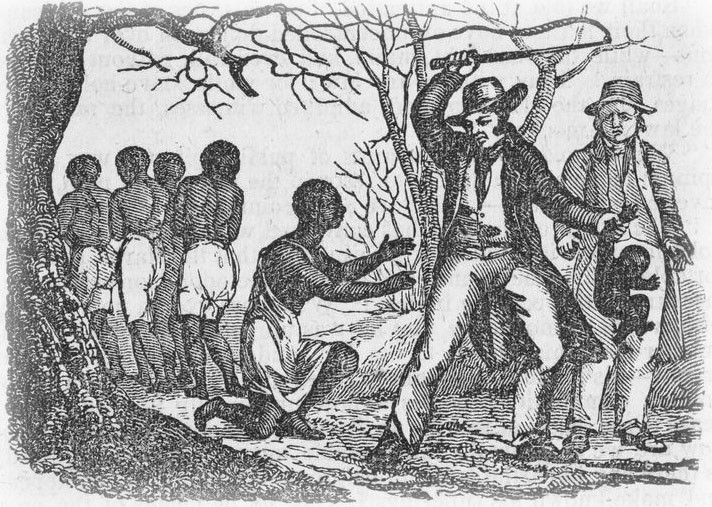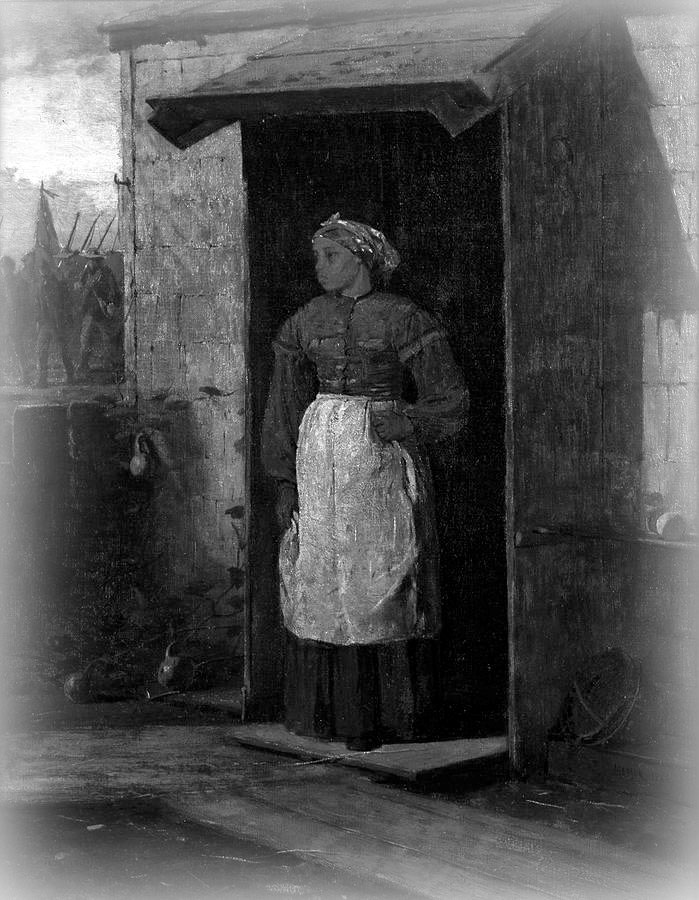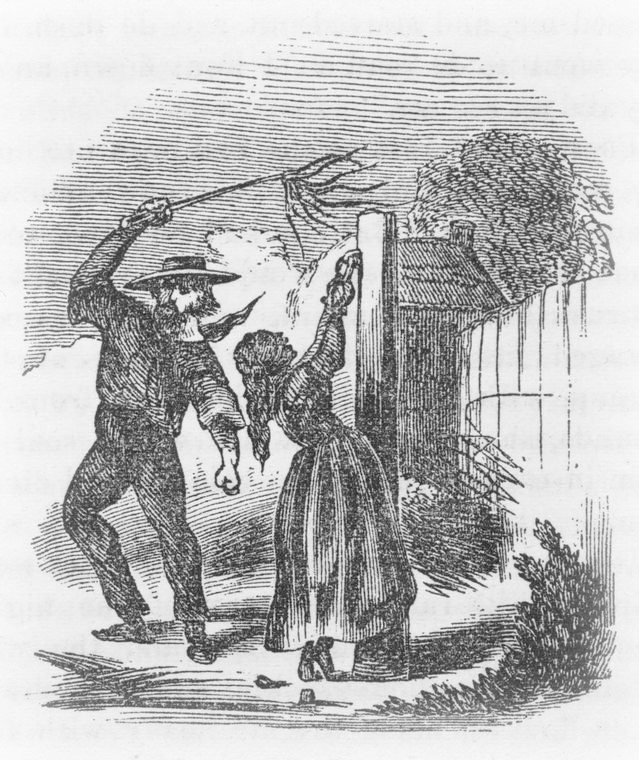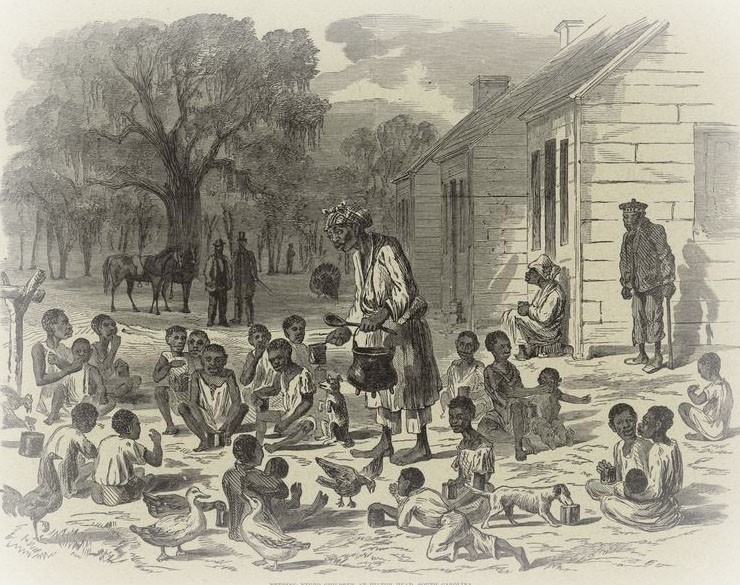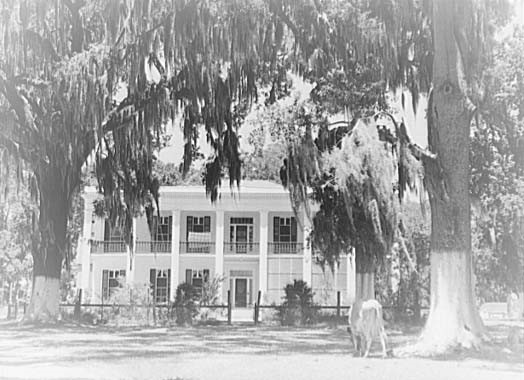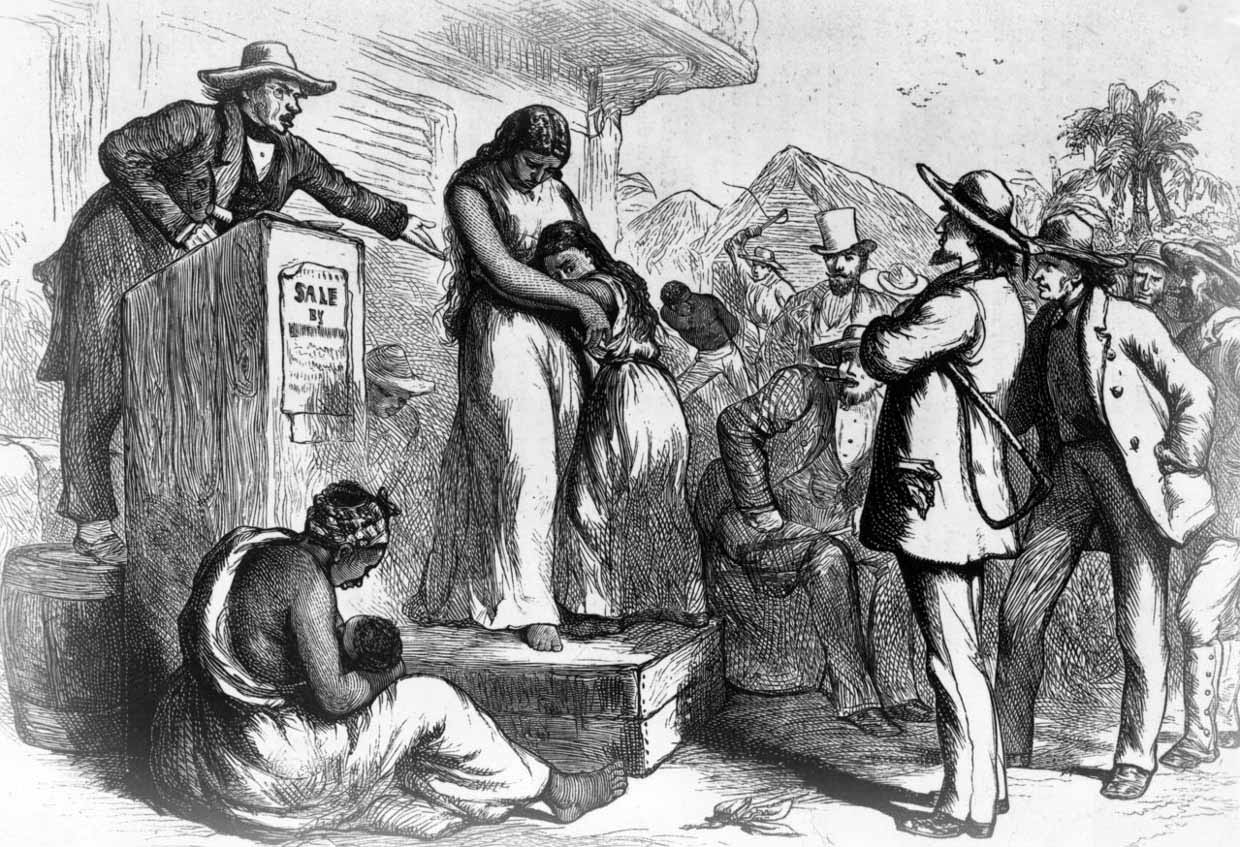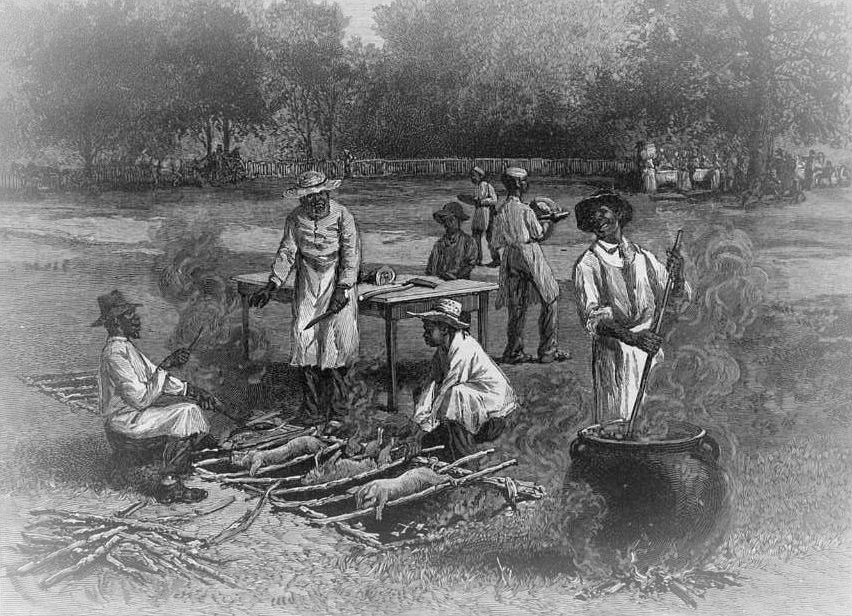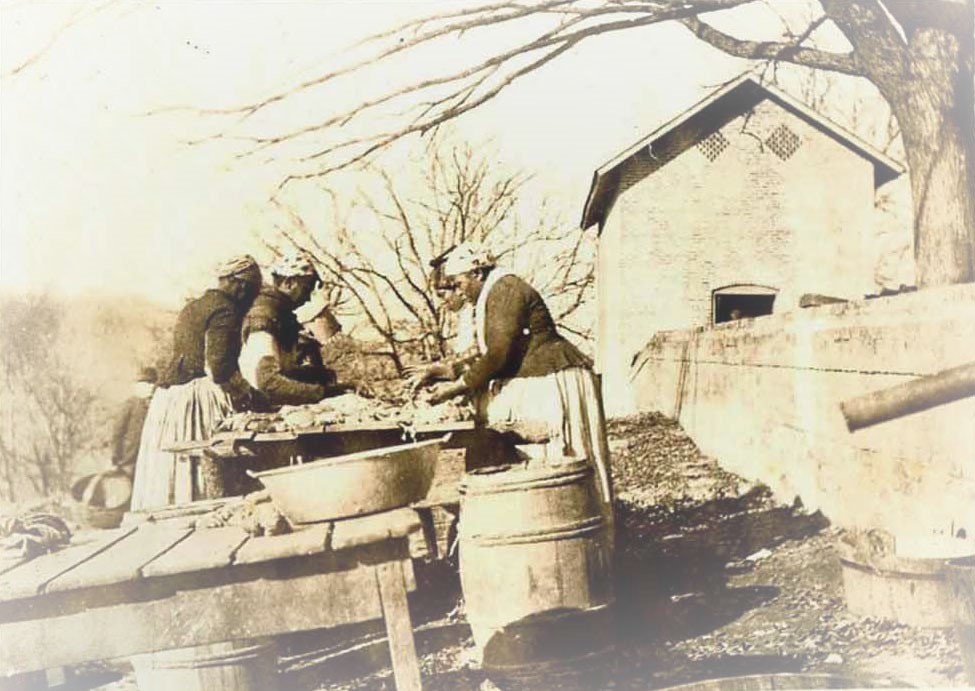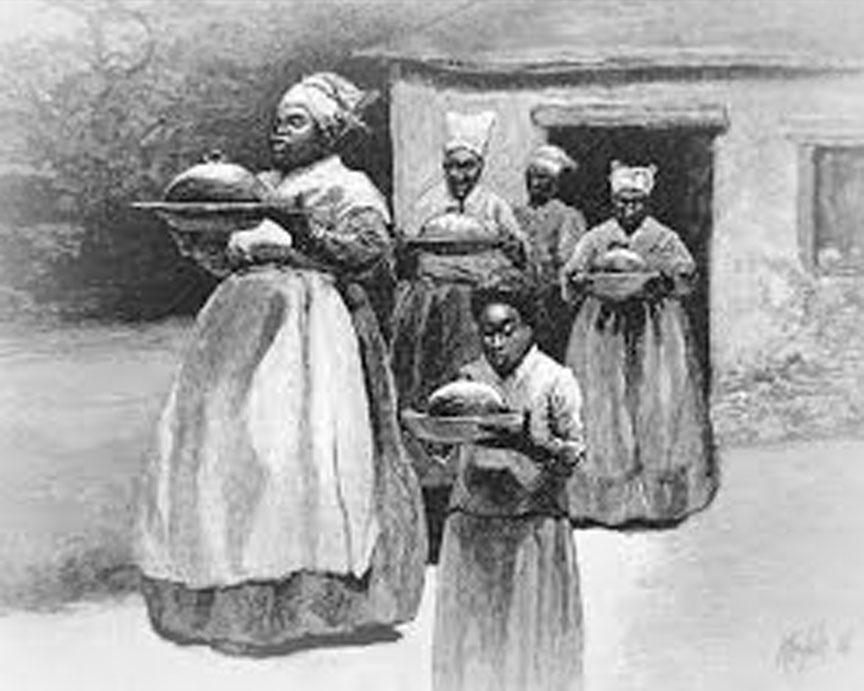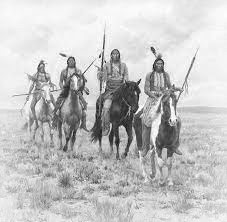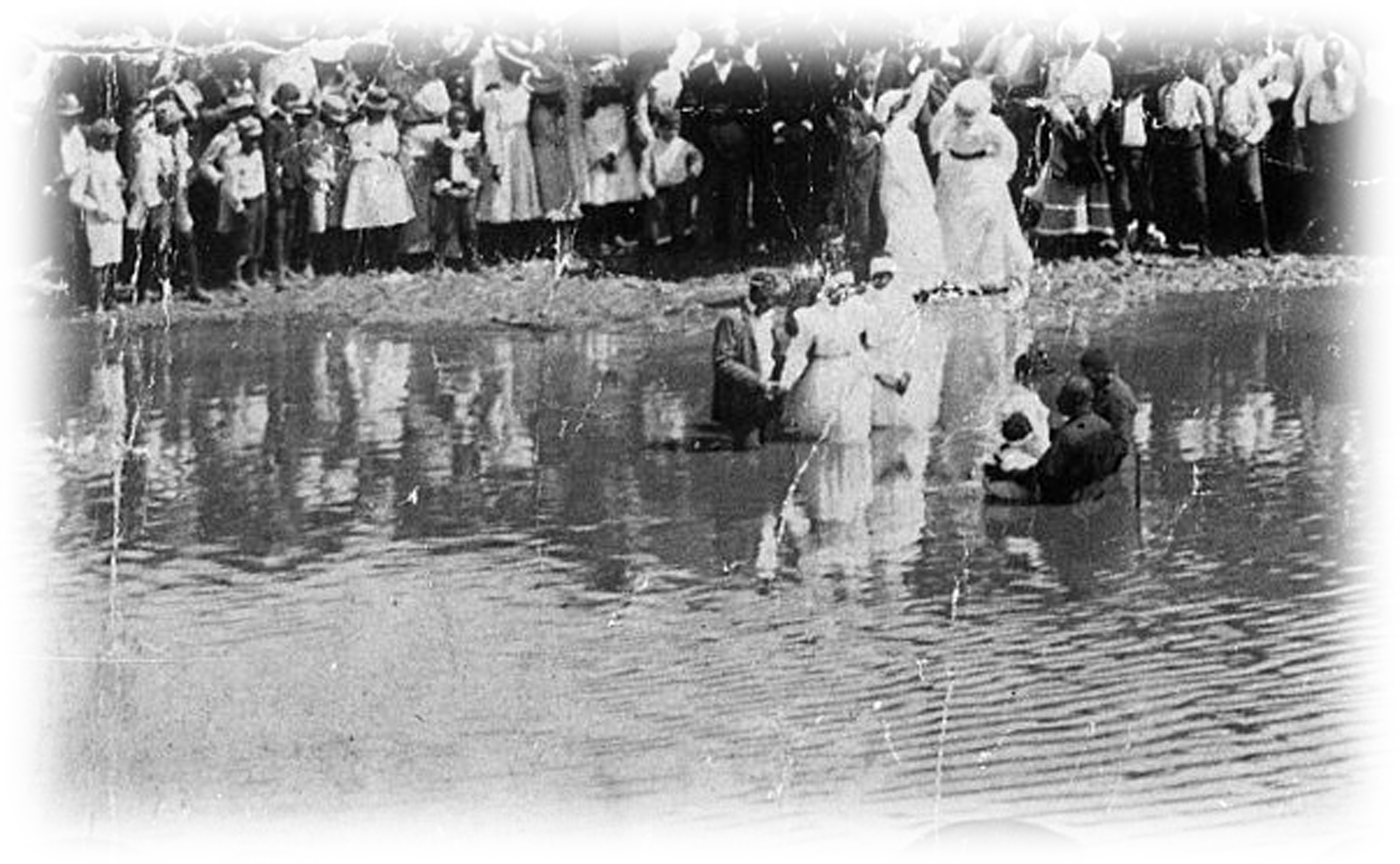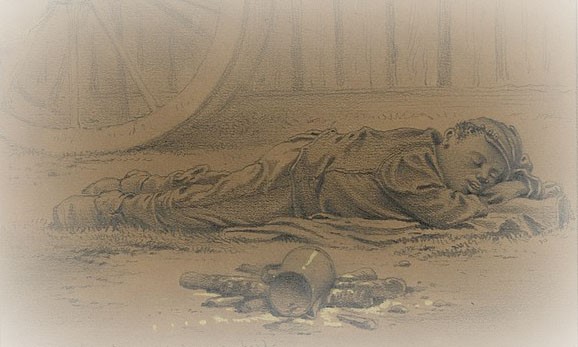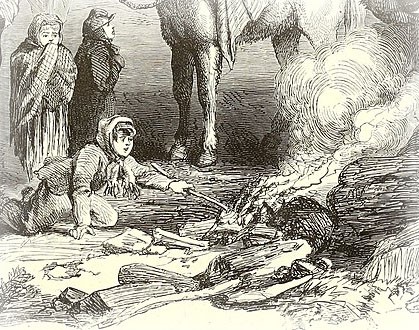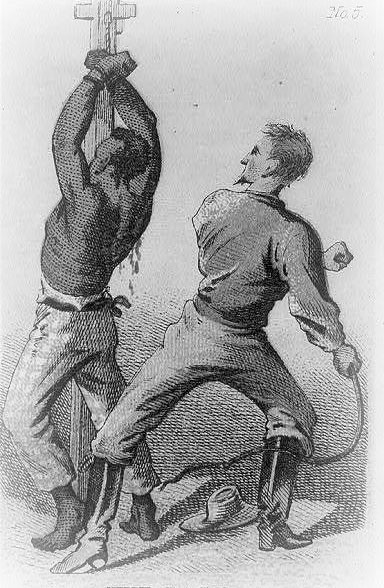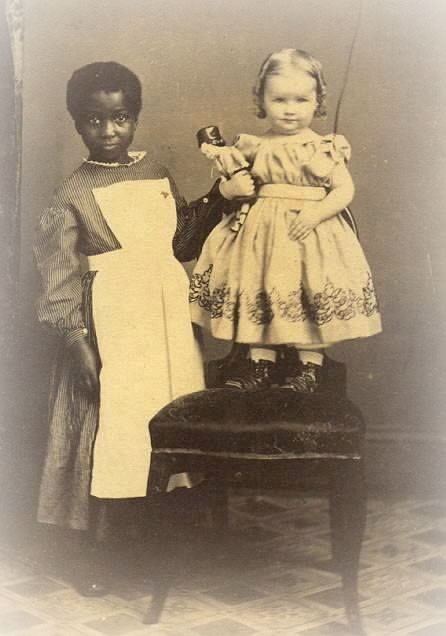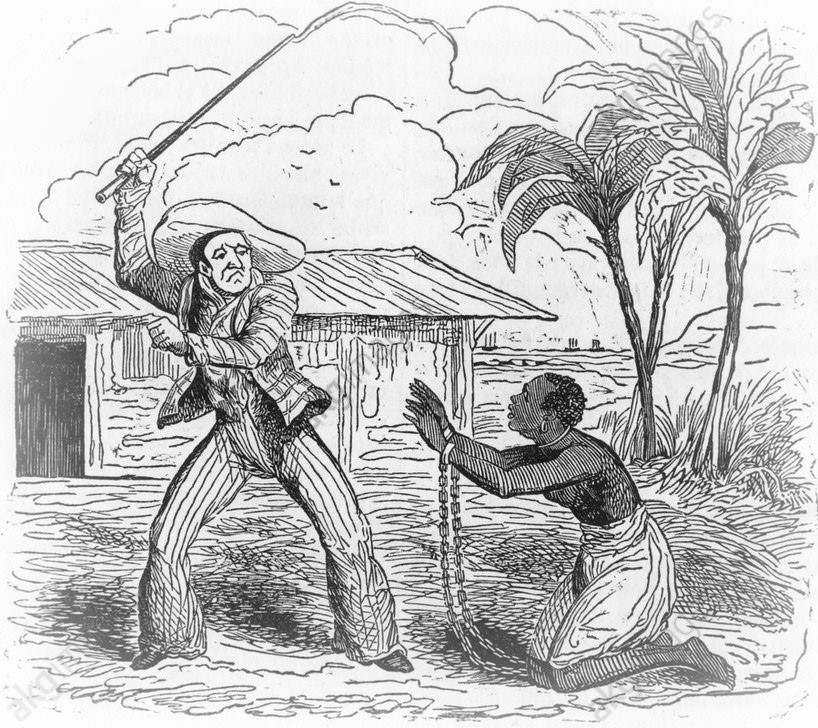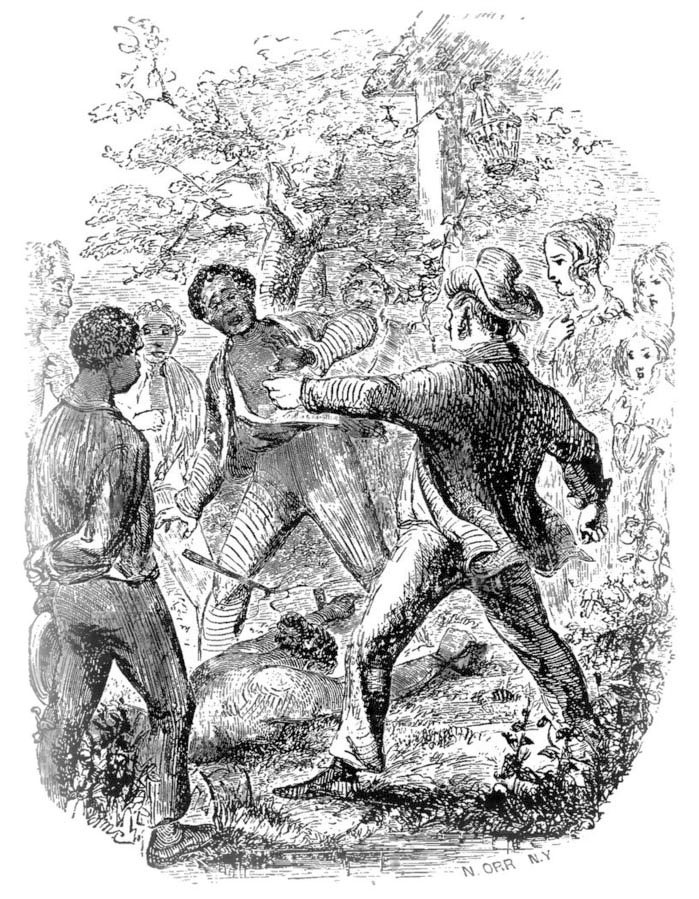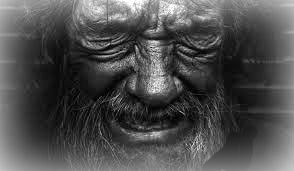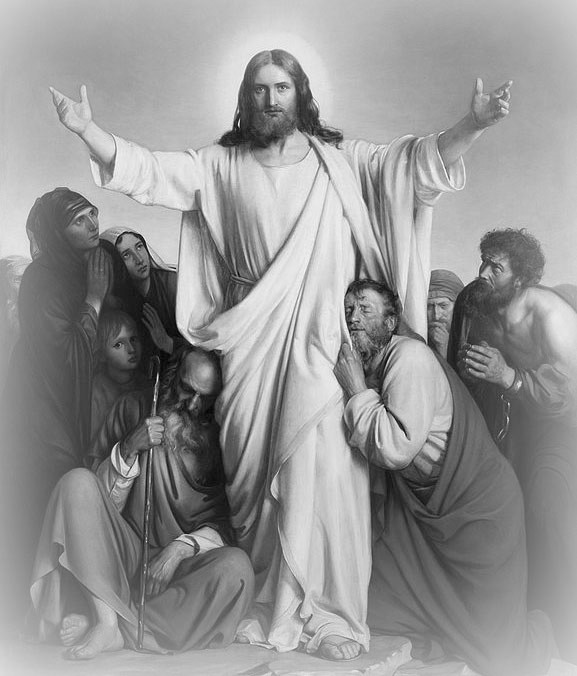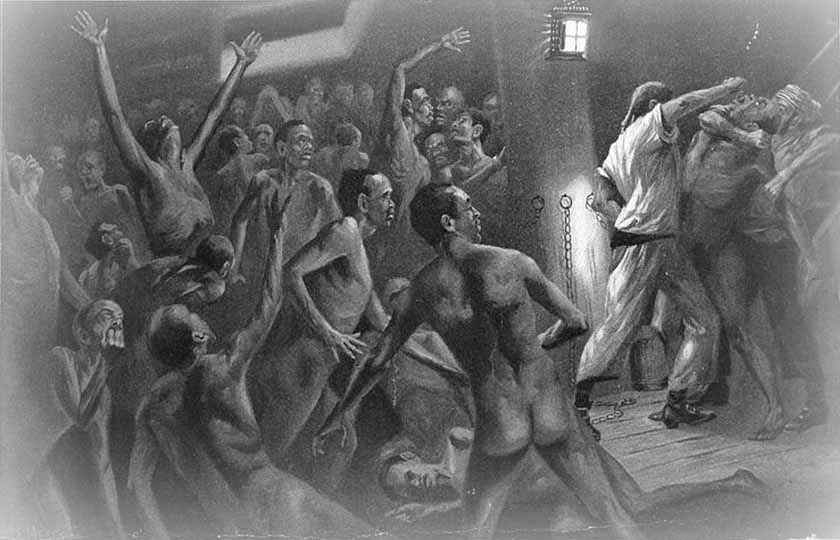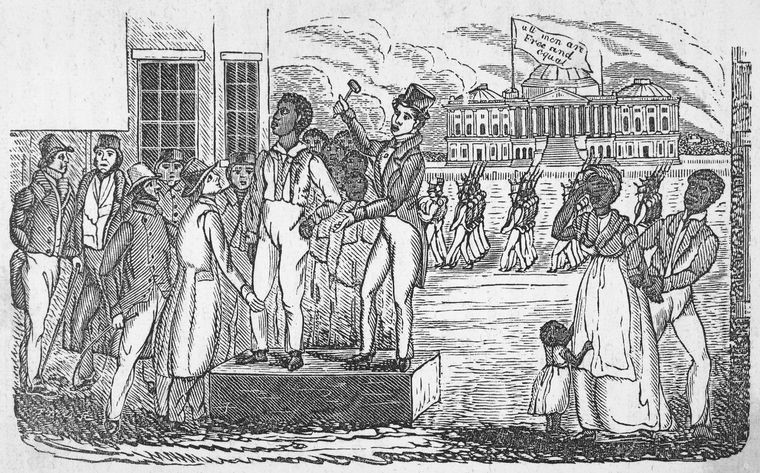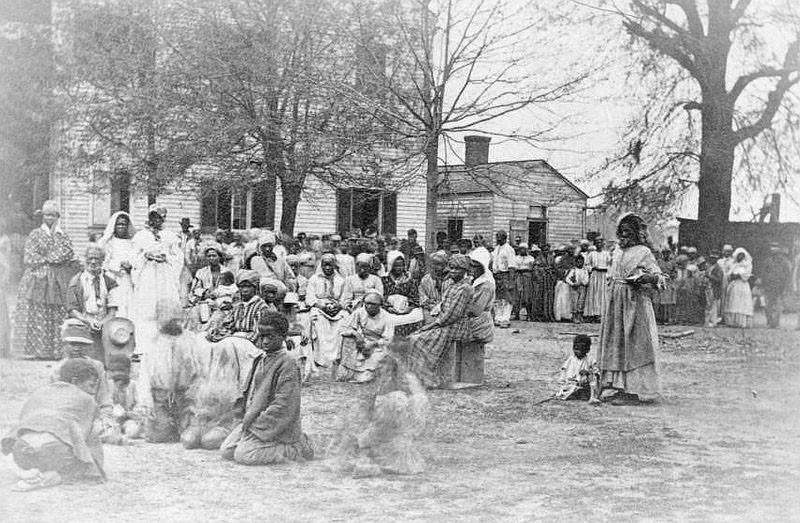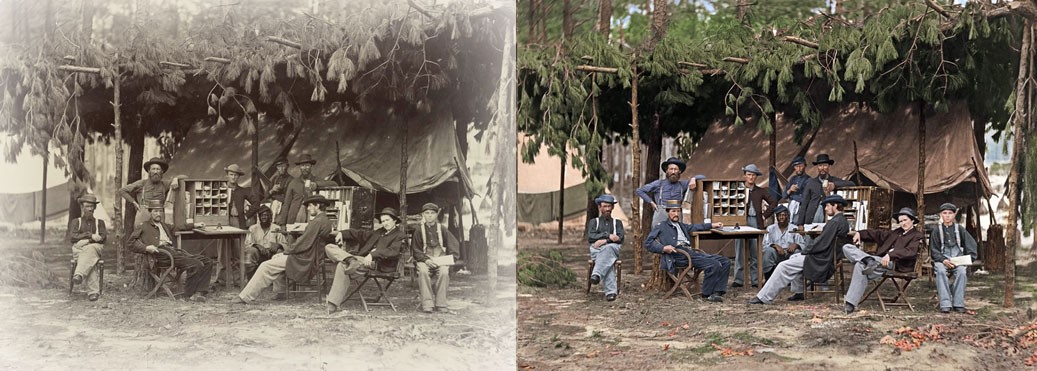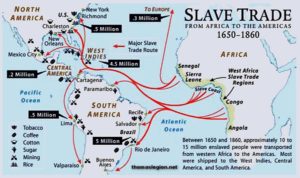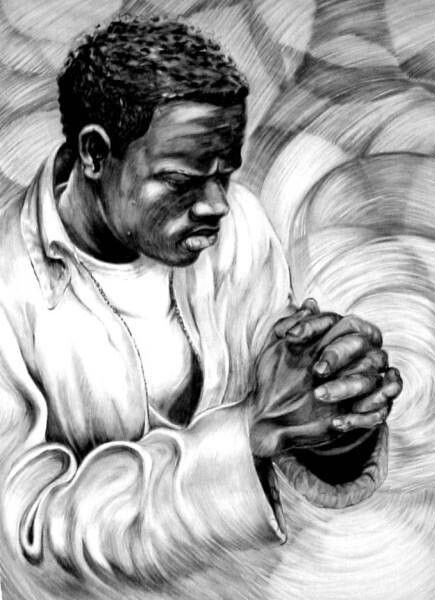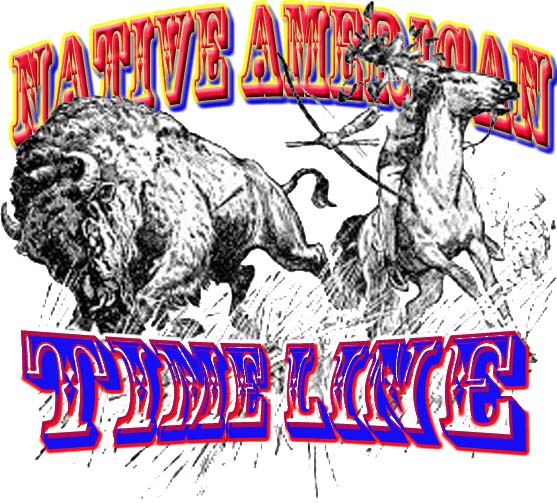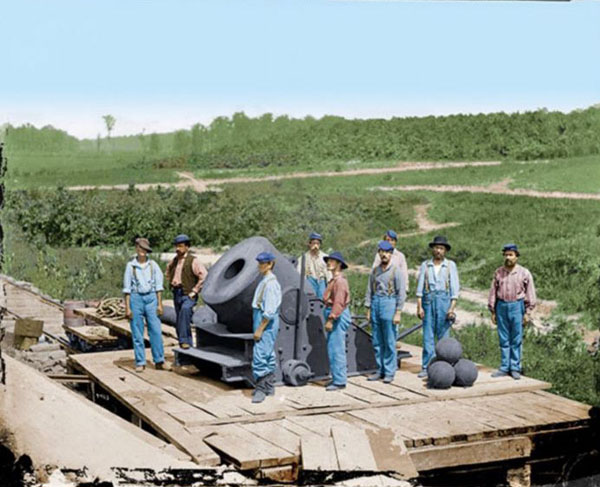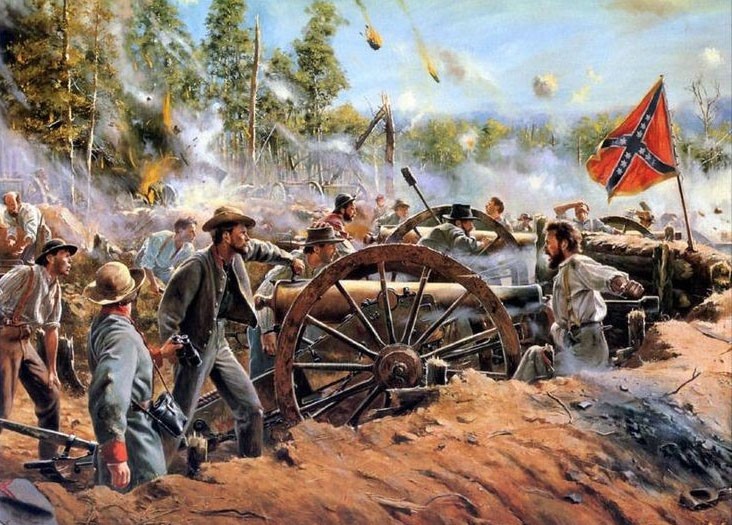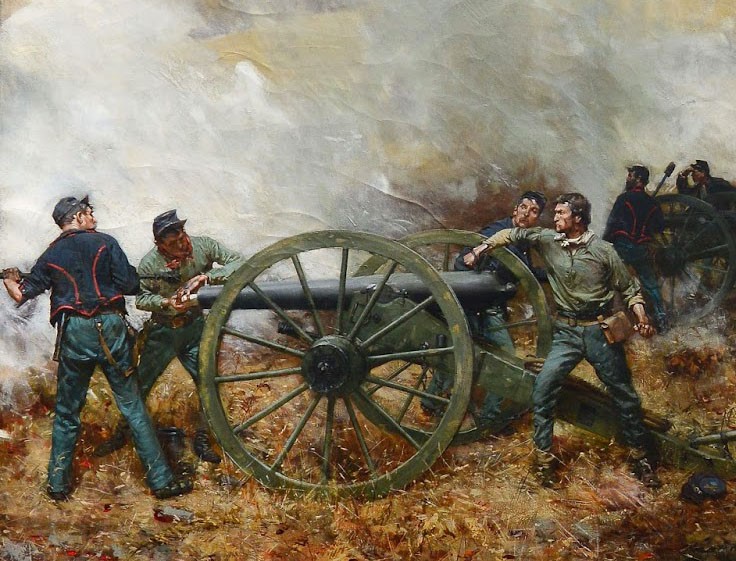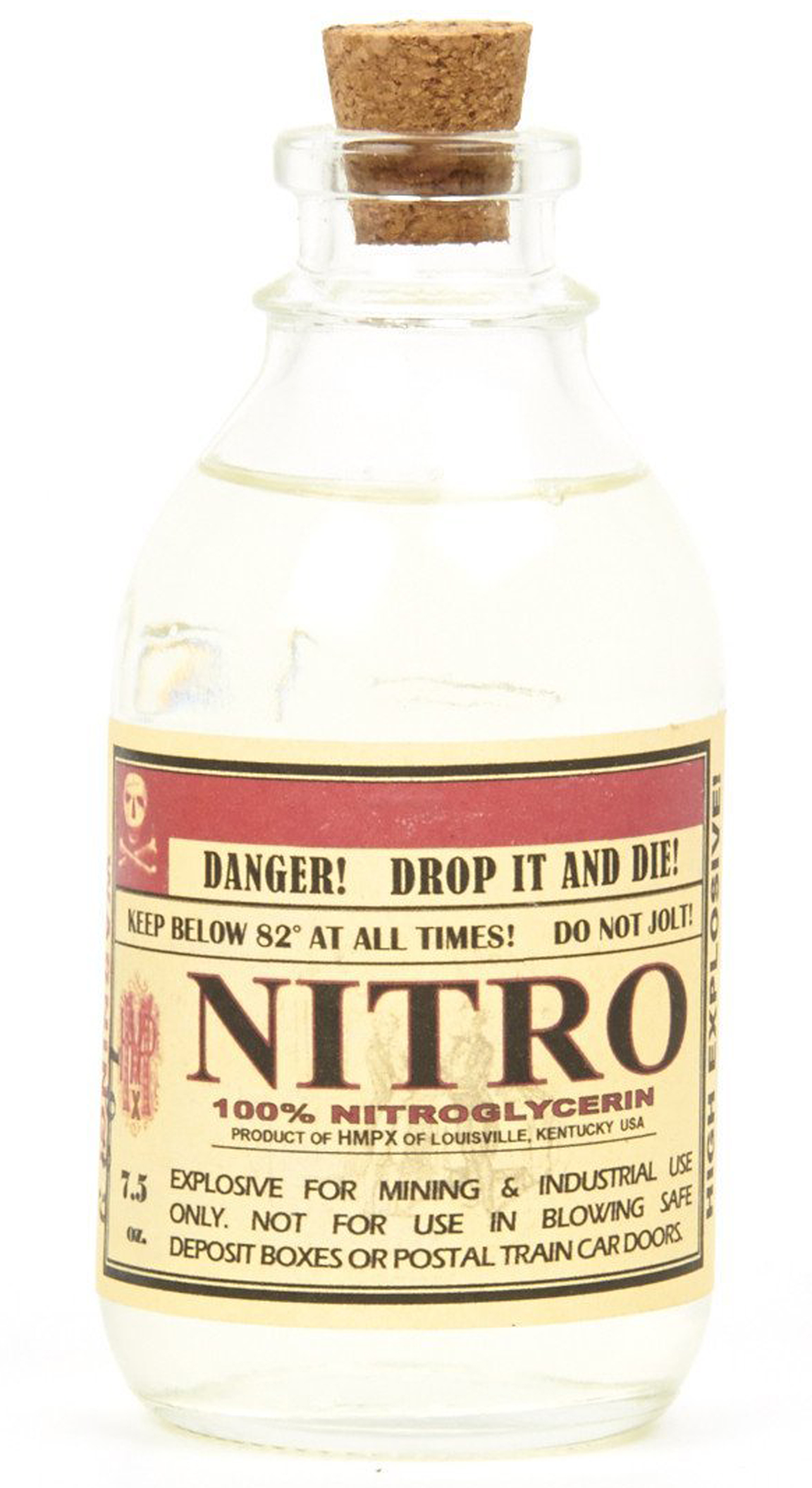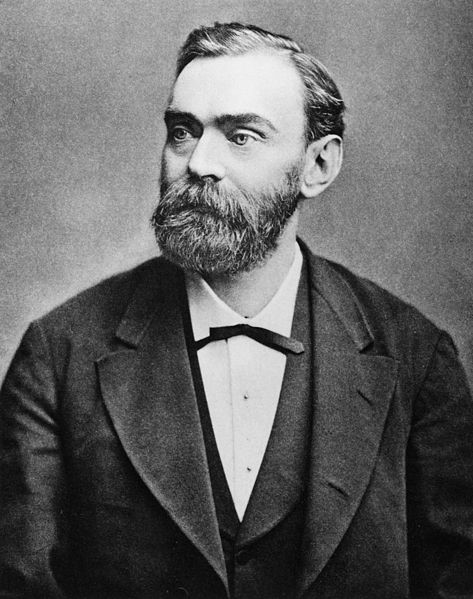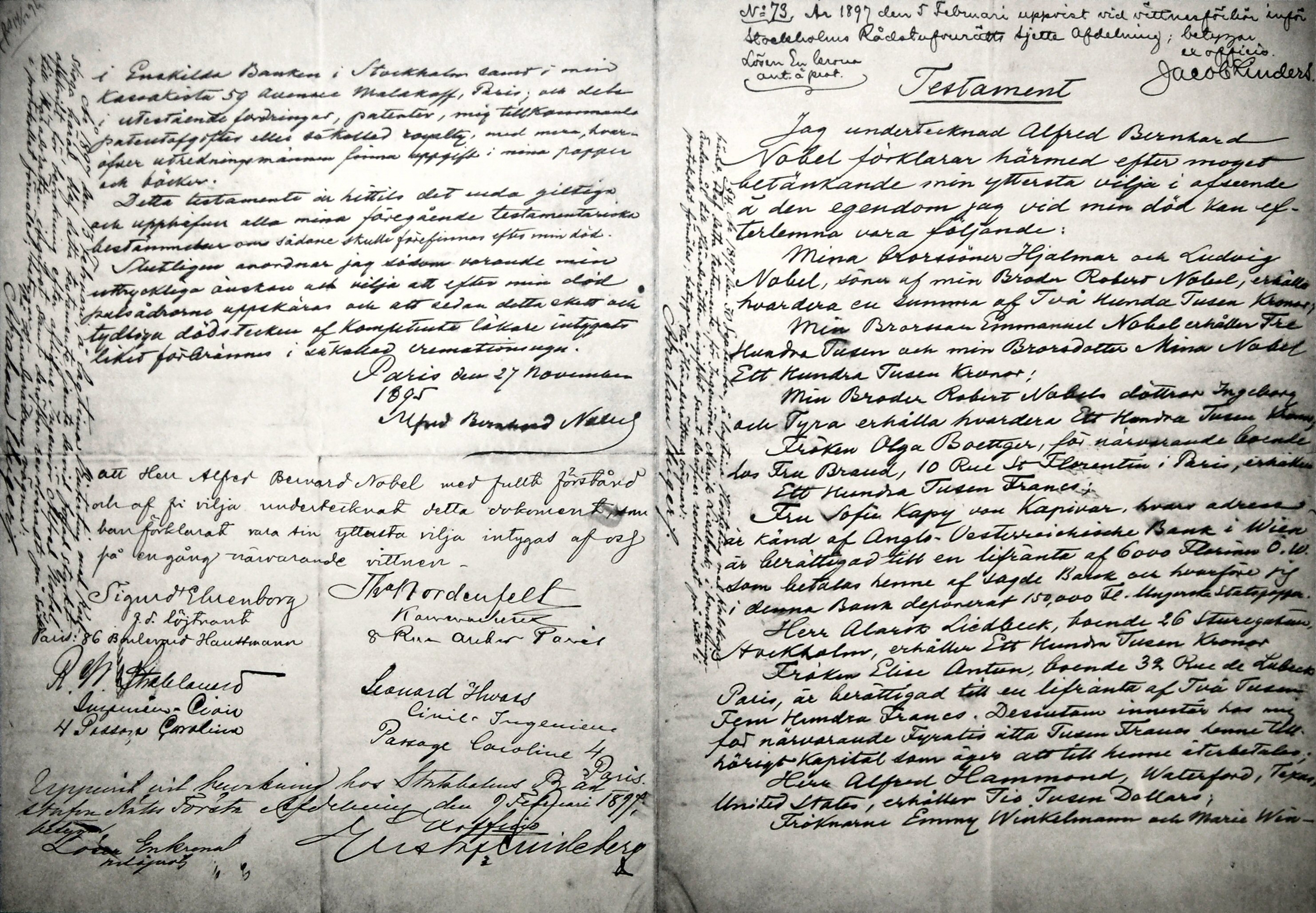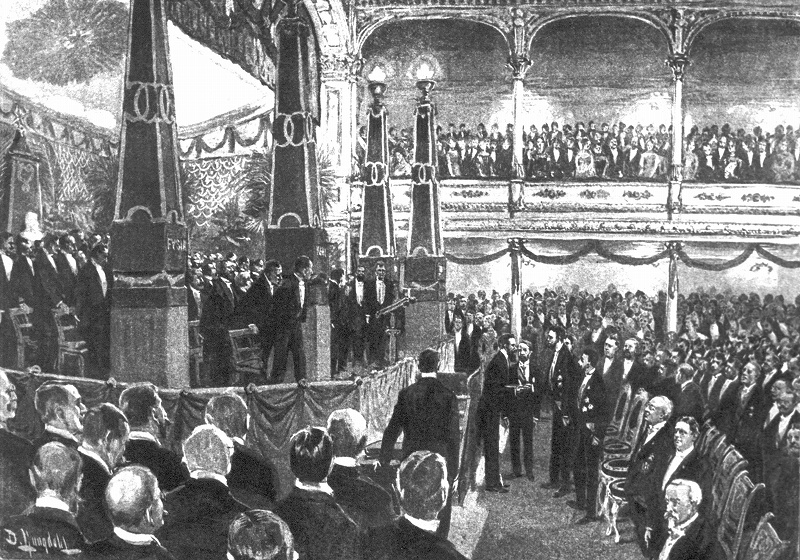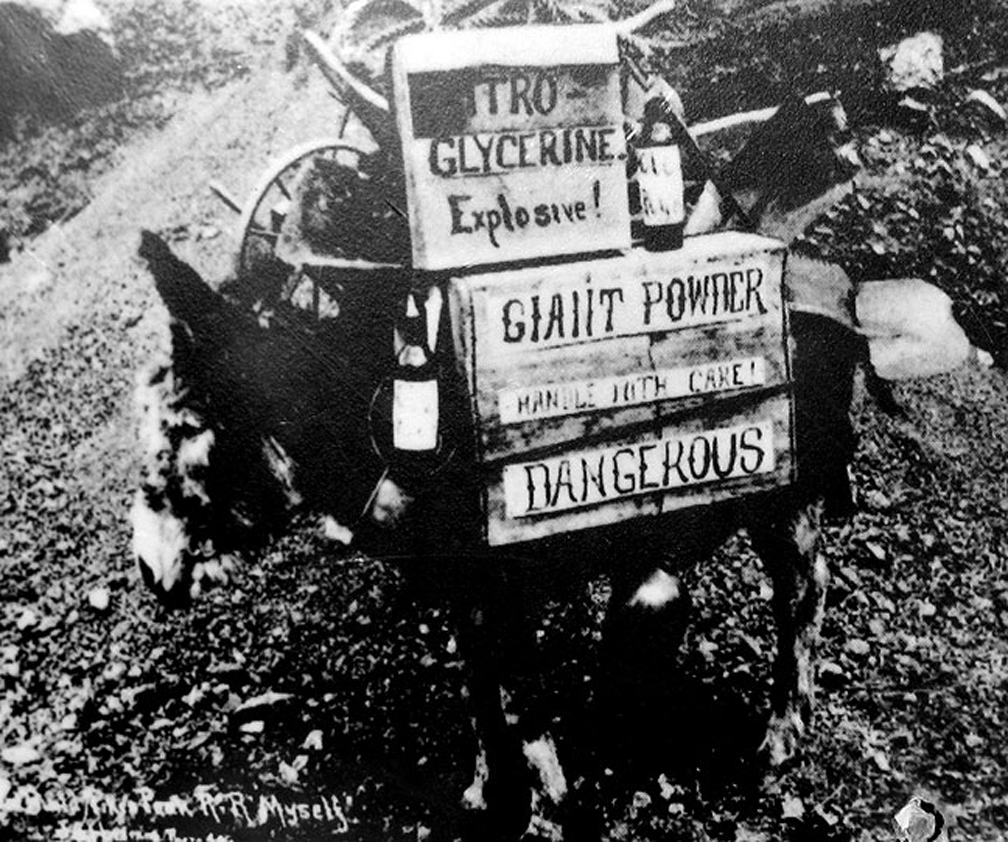Sure, everything was terrible while he was a slave. But the hardest thing for him to think about it all was the memories of her. These memories were unique and precious to him, but they reminded him of what he had lost—lost long ago. That is why he never wanted to talk about slavery times because he had to think about her. But Jonah thought it was more important that the children know about their grandmother, so he kept answering all their questions.
Unwillingly Jonah began, “She was born behind a rich white woman. She sure was. She wasn’t no poor woman. No, she wasn’t. Her husband was living then. Oh, she wasn’t no poor woman. She, ah, she brought my missy up here from the South, oh from one the other, in this country. She brought my missy here to Texas, when she was young. Oh, my missy was young. She wasn’t grown. Oh, she brought there to the land where I was. Oh, way up Texas, and get grown.”
Jonah continued telling them about his wife, “In day time, my missy, she tends to all the children with the old woman. Tend to the children. Just like, you know, you bring a whole lot of children, you know, and put them down, you know, at one house. Well, there somebody have to look over them, you know and tend to them, that way. Just a house full of them children. And if one act bad, you know, they’d whup him. They’d whup him. And if the old woman didn’t tend to the children, they’d whup, they’d whup her too. You know to make her tend to the children, she wasn’t doing nothing. Well she was a cripted woman, you know. She was an old crippled woman, and they’d whup her.”
Still talking about his time in slavery, Jonah said, “But there be a house, you know, where are feed all the other children. I call that a slop room place. After she done, in the morning, at the big house, my missy, goes and feed the coloreds. And they had trays, I don’t know where you see a tray today. Wooden tray, dug out, you know, all about that, that long;” Jonah held out his arms and stretch as far as he could while still setting down. “And all of them you know would get around that tray with spoons, and just eat. I can recollect that because I ate out the tray. With spoons, you know, and eat, treat you like mush or soup or something like that. But feed them, you know, before twelve o’clock. And all them children get around there and just eat, eat, eat out that thing. No table, no cloth, ain’t no fork and knife, big long tray, and gots his wood spoon.”
He had a disgusted look on his face when Jonah talk more about feeding the slave children, “And that old woman, you know, she would tend to them. Just like slopping hogs wasn’t it. It, just like a tray, you know, just like a tray, you know, you have, it’s made just like a hog pit, a hog trough, you know , hmm, that nasty. And, and ah, of course you know they’d wash them things and scald them out for the children. I didn’t see them scald, but that what they told me, they scald them out, you know. For the children. And ah, them children eat out of that, that thing and, that’s with wood spoon, if one would, if one reach his spoon over in the other’s hand, over in the other’s place, he going hit him. Hit him, you know. Knock that, knock that there, s-s spoon back, you know, on his side. On his side.”
Speaking more about his wife, Jonah said, “Oh. Well, my master, have me to help my missy with the big house work chores. Tote water, stacks the firewood box. I’s big enough to help her, she young yet. I be da yard boy. She be house slave in da, big house. I’s don’t know how we not get together when they has us in the pantry night time, so’s she can be ready to fix vittles in the morning. Stayed there till, was grown young man too. Kept the house, the yard and all the horses. Yah, sir.”
Then Jonah told the children, “Oh, oh. In them days, them days the white people had control over the, colored marriage, slavery time, that slavery time. Those wouldn’t hardly agree no matter no how. They brought my missy to this country, she wouldn’t let nobody take, take her away. She raised here there, with, with her children. She raised her there with her boys and girl. She didn’t have but one girl. Oh, but she had five or six boys, some die. She didn’t have but one girl, and she, and she was a little. She was little. She wasn’t no big girl. Oh. Oh, but she stayed there till she got to be older, then she sold.”
Surprisingly it was not one of the girls that asked the next question, “Now, who did the cooking for the plantation?” From the young man’s size, you tell this boy liked to eat.
Jonah turned up his nose a little. He remembered what he mostly had to eat back then, mush, fried grease, and dough, and once the while, the salt pork and beans. “I don’t know what the old woman’s name done the, the cooking. A master Jake did tell me not, not long ago, who done the main cooking. You know they didn’t cook, cook in the ah, kitchen like here, they’d have a, off, off kitchen. Off from the house.”
Jonah explained, “In the south it was too hot to cook inside the house like folks does now. So, they had cook fires off the kitchen yah know.”
A heavy-set young man asked, “Did they really do the cooking outside like a bar-b-que?”
Jonah answered, “They cooked, you know, on the outside. Right in the yard, but no, they cooked it out, out there, and then brought it to the house. They always brought it to their kitchen, when I was a child. And then pack the vittles, you know, to the kitchen. Pack it to the kitchen. They didn’t have, they wasn’t cooking in the, in the kitchen dining room. Once, the twice, a year they do da pit cooking, we got real full too just like this day here.” Jonah rubbed his big belly and gave out a fake burp.
Leave it to one of the boys to ask, “Jonah, did you hear anything about the Indians in the days when you were young and the things that they did?”
Jonah put on his best tuff man’s face and said, “The Indians were pretty well gone at that time down there I think. But not, farther north. Oh. I have seen them, but I didn’t know them. I’ve seen them, but I didn’t know nothing about them. But I did have doing with them a once. Met one with an ax. Caught them in the smoke house at the bacon, taking at night time. They were more hungry than us coloreds, let him take some meat but I’s took back the ax. Good for me; he wanted food more than kill me. Then they all gone.”
Jonah checked his pipe, knocked out the ash on his pant trousers, and rubbed it into the cloth. He took out some more tobacco and reloaded his friend. With the stem of the pipe, he pointed to the nearest child. He said, “Another exciting thing in my early childhood was the colored baptizing. How they did it. All the candidates for baptism was standing on the bank of the pond over in the cow pasture. They all dressed in long white gowns, with white caps on their heads, ready to be buried in baptism. And the song, as they were being led into the water by the minister was this:
Oh, brother, keep your lamp a trimmed and a burning.
Keep your lamp a trimmed and a burning.
Keep your lamp a trimmed and a burning.
Just like the light of God.”
Jonah began clapping his hands on the backbeat and stomping his feet on the down. He did some real ham-boneing, between slapping his thigh and clapping his hands.
“Oh, sister, keep your lamp a trimmed and a burning. “
Jonah grabbed a young girl about 8 or 9 years old by her hand, and they began to dance around the fire. He kept on singing.
“Keep your lamp a trimmed and a burning.
Keep your lamp a trimmed and a burning.
Just like the light of God.”
By this time, all the children were singing to Jonah’s call and response. He sang the first line and then they all sang together. Everybody was thrilled and filled with a good spirit.
“Oh, mourners, keep your lamp a trimmed and a burning.
Keep your lamp a trimmed and a burning.
Keep your lamp a trimmed and a burning.
Just like the light of God.
Oh, sinners, keep your lamp a trimmed and a burning.
Keep your lamp a trimmed and a burning.
Keep your lamp a trimmed and a burning.
Just like the light of God.”
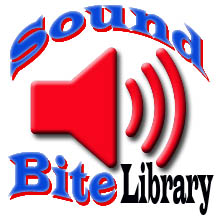 Keep your lamp trimmed and burning – Blind Willie Johnson
Keep your lamp trimmed and burning – Blind Willie Johnson
The choir gave themselves well-deserved applause, and they sang some more old tunes together they all knew from school. Jonah asked two of the bigger boys to go over to the woodshed and get a few sticks for the fire. And he sent some of the girls to fetch water from the well because his mouth was too dry from talking so much.
Jonah said, “Maybe time for us-all-here to get down to doing some sleeping, hay?” The response is what you might expect from young children that are getting to stay up late. The answer was, “NO!”
A young man stood up and stirred the fire sending more sparks up into the night sky.
Jonah pointed to some sticks on the ground, and the boy added them on top of the red-hot coals. The dry wood quickly took off burning, snapping, and popping. It lit up the darkness with an orange glow that sent spooky shadows dancing throughout the trees.
Then he asked, “Jonah, did you ever see anybody get punished? Ah, did they ever whip you?”
Jonah answered right away without hesitation, “Master used the whip for the farm animals. Never hurts any of us coloreds, but did hear of some. Well, once when I’s bonded out to nother plant there was a, ah, house gal that got bad treated.”
“She be a house gal running and playing with another girl, and just catched her by her wrist this-a-way.” Jonah grabbed his arm with his other hand and gave it a little twist. “Both them pushed down in a rocking chair. When their mistress come home, that girl she crying, mistress asked her what was the matter, you know. She told, that gal hurt her, hurt her wrist. And ah, and mistress asked that gal, ah, what ya-all doing in this house here hurting this girl?”
Jonah shook his head in disgust with what he was about to tell these children. He was not too sure if telling them would be a good idea. Some things may be better left unspoken about. But, deep down in his heart, he remembered his master telling him to always do your best at whatever you are doing.
“Be good boy, be good man, be honest and always tell the truth.” That is what master Jake always told Jonah.
And he thought to himself, “These children need to know the truth.”
This story was going to need a fresh pipe, so he got ready. But when he dropped it on the ground in front of him, there was a scramble of children trying to retrieve it for him. The fastest one won and handed it to Jonah.
He changed the subject right then and there and told all the children, “Listen to me, don’t ya all ever start, don’t ever start. Leave the pipe alone, Jonah wish he be, never even try. Don’t ever even try. Jonah gots the bad cough from the tabacca. Don’t even try.” Trying to change the subject again, he said, “Now where was we?”
Jonah was just stalling. He did not want to tell them this, but he did anyway. “That gal not hurt that girl, she told da mistress that. She say she wasn’t hurting the girl, but the thing is anyway, well the mistress dragged her to the peach orchard and, whupped her. I’s there, seen it happen. And, you know, just tied her hands this way, you know, around the peach orchard tree.”
Jonah held out his arms in a big circle. The children could quickly tell that this story was not easy for him to say to them. It was like he, Jonah, felt a little responsible himself for not helping her that day. “I remember that just as well, look around a tree, see, and whupped her. Well she couldn’t do nothing, but kick her feet out at them. The more she kick, more the keep whupped her. They didn’t have her plum naked, but they had her clothes down to her waist. And every now and they they’d, whup her.”
Jonah looked at hot ashes in his pipe, “You know, and then, snuff the pipe out on her, you know. Snuff the pipe out on her. You know, with embers in the pipe. I don’t believe what ever I seed, the pipe still smoking and snuff out on her there like that. You know, with embers in the pipe. Good God! I said, I don’t believe what I’s seed, I not stay to witness no more, I runned off. I was wake till morning that night.”
Someone else asked, “Didn’t she scream?”
Jonah choked as he tried to answer that question. He still felt like he should have done something to help that gal, but the truth was, if he had wanted to help her, he would have been punished far worse for just trying. “Yeah! I think she was. I think she did, but she mouth bound too. But you see there was we, was daring to go out there, where it was, you know. Because ah, the overseer he would whup us if he catch can. You see, that overseer, her papa, her papa was the overseer but he had to whup her. He whupped her too. He really sure did whup her. Well, he ah, he a whupped her so that at the night they had to grease her back. Grease her back. I didn’t know what kind of grease they had, but they sure greased her back, and night you know, that way. They just grease her back.”
As hard as it was, Jonah kept on telling the story, “And ah, so after him, after so long on the tree, so, whupping being so long, that way they quit. Then they give her, her dinner. Late that evening they give her dinner. Late that evening of course she been whupped so bad then, you know, she didn’t want to eat, you know. If for they whupped you half a day, you ain’t want to eat no how, you know.”
Jonah felt like he was going to lose some of that fine meal they all had just enjoyed. These memories made him just plain sick. He excused himself and went behind some trees. Then, the children could hear him sobbing in the darkness. They all wanted to go to him and comfort him, but before anyone could move, he came back out of the dark.
As Jonah returned to his hot seat, he looked around to see if anybody had been watching. With a face full of tears, he said, “Man tears, man tears, those,” with his finger, he wiped tears from his face and held them up, “Are man tears. Good for man to cry when pain so much. Jesus cried for us, cried tears, Jonah cried for that gal, her tears done all used up, all used up. Jonah cry man tears for that gal.”
Jonah was not the only one with tears in his eyes. He looked around, and he could tell that his young listeners were deeply affected by the truth. There is no way to soften the blow when the facts hit you in the face like an old wet dishcloth. It takes a while to get the stink off. But you always remember how it smells. They all knew that the pain they felt now about these stories was nothing compared to what the colored folks felt when they went through slavery. Their heritage, their history, was being passed on to them now.
Jonah told them that they held the responsibility to tell the truth. They had to pass on the good stories that made them laugh, as well as the tuff times too. But this is what he wanted them to remember the most.
He said, “Members that the Lord loves ya. He loved us first, so we-all would know how’s, ah, to love each other.”
Jonah stood up, adjusted his self so that he stood real proper. Then he looked the children right in the eye and said, “The most important I’s can ever teach you, is about Jesus. Jesus. The Lord, Jesus. He is everything to me.”
Jonah thought for a moment to himself. He could look back at his whole life in a flash, and he felt so unworthy of the precious gifts that the Lord had blessed him with over his lifetime. He had survived an unbearable trip here from Africa, fighting for his life all the way.
He had been separated from his mother and left alone. And when he prayed to the Lord, He saved him by protecting him from harm with the white ship captain. He found himself on the block of slavery. And when he prayed to Lord, He saved him by guiding the hand of the man that bought him, to rise Jonah as his own.
Once again, Jonah looked up into the sky. The dawn was starting to cut through the clouds, and the fire was going out again. He smiled at the children that were surprisingly all still awake. He could not believe it.
Then he started to sing. “Do ya member a song, a old song, it called, Go Down Moses?” They all started yawning, but trying to pick up their spirit, Jonah began to sing, and they all followed in and joined him.
“Tell old Pharaoh let my people go,” Jonah sang with a real deep voice, and his choir sang back with the bright sounds of their youth. “Let my people go!?” and they all kept singing.
“When Israel was in Egypt’s land
Let my people go!?
Oppressed so hard they could not stand
Let my people go!?
Go down, Moses, way down in Egypt’s land
Tell old Pharaoh let my people go.”
 Go down Moses – “O! Let My People Go: The Song of the Contrabands.”
Go down Moses – “O! Let My People Go: The Song of the Contrabands.”
Soon the yawning took over the singing. Slowly the younger ones went to sleep. But there were still a few that could not stop talking about what Jonah had told them that night. Jonah slipped off into the bushes to relieve himself. As he returned to the smoking fire pit, he could hear a lively conversation about whether or not the few remaining could talk him into more oral history. They were hooked. And like a fish out of water, their mouths were open and begging for more. In his absence, the young adults had chosen one to speak for them all. A young lady that had been quiet voicetress all evening spoke. “Well, did they have church? Did the slaves have a church?”
Right away, Jonah’s spirit was lifted. He loved to witness to the young people, not only in his family but any of them that would listen to him. He believed there was a better chance of spreading the gospel to the young, more than an older person that may have hardened his heart to the word. Jonah’s voice was energized when he spoke, “And another thing that I members, on that old plantation, that we not talk bout before was church. Ya see, things real poor, but we have the best church God can give us, it outside.”
This was going to require a fresh pipe load. Jonah had scolded his young listeners earlier about smoking, and now he felt a little guilty doing it right in front of them.
He packed the pipe anyway, lit it, and gave a big spit, then said. “Well, I, I well I don’t know about the church when it first started up, no more than the, you know, ah, when I was a child, you know, they used to didn’t have no church, you know, in no house, you know, they always had it in the trees.”
The curious one asked, “In the trees?”
And Jonah answered, “Under trees. Under trees. Yes, ma’am. Under trees.”
Still curious, she asked, “Brush arbors?”
Jonah answered her, “No mam, they didn’t have no brush arbors, they just had it under the tree. You see. Just had it under a tree. And you know, because of church got no building, you know, when they started. But I know when mama and them used to go to church it be under the trees, you know.”
Jonah pointed to the grove of trees behind them. The shadows from the fire were starting to disappear in the early morning light. “Out and under, under the trees. And, and didn’t have no church houses much then. Just like, you know, you get a big old tree, but ah, and clear all out from under it, and make a, dry spot to sit down, you know, and make benches on it, you know, or sits on that ground. That’s what they have for church, in da trees.”
Chunky asked, “Just get together and sing and pray, eh?”
Jonah answered, “That’s all I heard, would hear them sing. And ya know, night come, ah, I’d go and sleep pretty soon. Most time I wake, so ah, I’d sing these here songs we just did sing. We used to go to church, in them trees, and sing them same songs.”
Chunky asked again, “Well, they had preachers under the trees, didn’t they?”
Jonah smiled and said, “Oh ya, I knowed one of them, he named Uncle John. He preached to us. Yes sir. His name, Uncle John.”
The next question came right away, “Was he a good preacher? Did they preach like they do now?”
“Yes sir, he’s a good preacher,” Jonah assured them with an even bigger smile, he said. “They did better. They preached better then. And I reckon, because you see they was ah then, now they preachers by scripts most of the time. But then, you knowed, they just preach, preach by the spirit.”
Jonah pounded on his chest, “They preached from the heart, cause the Spirit in dar. The spirit, spirit let them, you know, preach the truth, whats in the Bible book. They could not preach good without the words in the book. And, and the Lord’ll teach them, you know. Teach them what to say and how to say, you know. He leads um, that what they taught us then. But now you know, they preach us by scripts. You know, they don’t preach by that, seem no more.”
Then a rooster crowed announcing the beginning of a new day. No one seemed to notice because all their attention was still focused on every word that Jonah shared with them. They all wanted to know what he could tell them next. The questions kept coming.
Interviews with x-slaves part 1 – 10
But the rooster had crowed from the top floor of the hospital barn. Chunky was back to reality. The Chief Surgeon had left him just standing there, staring into space. He probably thought it was only best to get away from Chunky after insulting him with bigotry. It was “water off a duck’s back” to the big man. Being a freed slave, his papa had pushed Chunky to excel and do the best at whatever job he had.
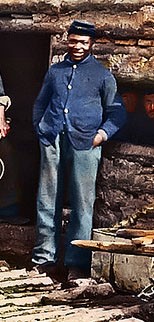
Jonah always said, “Do the best you can a whatever job they gives ya, even if you are digging a ditch, dig the best ditch you can.”
Jonah also had told him many times, “Anything worth putting your time into is worth doing a good job of it.”
This confrontation about race would not slow down this young man. Chunky had the Lord Jesus in his heart, and Jonah had raised him to rise above the occasion when you are confronted by hate. He remembered that the Bible tells us to pray for our enemies.
So, Chunky said a quick, “Bless this man, Lord,” and left it at that.
Playing in the band gave Chunky some special privileges along with some dirty jobs. The army could travel great distances marching, even if they did not have the proper footwear. They could fight all day on an empty stomach. But they could not go into battle poorly equipped. Chunky was ordered to help supply ammunition to the troops. He was sent in a company with another team on a secret mission. The soldiers were to deliver a load of cartridges and powder to the army up at the front lines. A six-mule team could draw 25 cases of 100 lbs each. It was very dangerous just to be close to the ammunition dump or supply train. The enemy was always trying to blow it up wherever by sabotage or artillery fire.
Union mortar
This trip was no exception to that rule. As the pack-train made its’s way slowly toward the front lines, it was hard for Chunky and the men to tell whose artillery was firing at whom. Shells were landing to and fro as they pushed forward towards the rifle fire. Wounded men of both sides were suffering all around them. Covered in mud and blood, it was hard to tell which side they were on. Humanity itself was visibly suffering, and it felt like civilization had broken down.
Artillery fire from both sides
It was no longer alone the boom of the batteries but a rattle of musketry. At first, it was like pattering drops upon a roof. Then a roll, crash, roar, and rush, like a mighty ocean billow upon the shore. Wave after wave came with deep and massive explosions of the batteries, like the crashing of thunderbolts. Such a storm of balls and shot, no one could conceive it possible for men to live through. Shot and shell shrieking and crashing, canister and bullets whistling and hissing most fiend-like through the air until you could almost see them. An incoming shell landed just beside the leading mule. It exploded, killing the animal instantly and igniting a secondary explosion of the munitions he was carrying. The men had no place to run. No time to pray. Explosion! Explosion! Explosion!
There are times after a battle where there are no witnesses left alive to tell the living what happened. The onlooker can only guess. The first men to arrive at the scene of the explosions were horrified at the destructive force of the blast. The pack animals must have been carrying some kind of high explosives like dynamite or nitro-glycerine.
Nitroglycerin
Nitro-glycerine was invented in Italy in the mid-19th century. It was a powerful explosive that degraded over time and made it dangerous to transport and use. In its pure form, it is a contact explosive, and physical shock can cause it to explode.
Alfred Nobel
Alfred Nobel, in 1867, invented Dynamite, the first safely manageable stable explosive. Dynamite combines nitro-glycerine with absorbents and stabilizers, rendering it safe to use. But over time, dynamite will “sweat” nitro-glycerine. Crystals will form, making it shock, friction, and temperature sensitive. Old dynamite is prone to blasting accidents.
Alfred Nobels will November 25th, 1895
After his death in 1895, the will of this Swedish inventor established the Nobel Prizes, “for the Greatest Benefit to Mankind.”
The Nobel Peace Prize has been honoring men and women from all corners of the globe for outstanding achievements in physics, chemistry, physiology or medicine, literature, and for work in peace of the world.
The first Nobel Prize 1901
This secret had been kept from the men and the mules. All the trees were pushed out around a six-foot-deep circular hole in the ground. Mud, blood, and guts covered everything left standing. There was no way of telling, man from mule. All had perished during the explosion.
The men that found them had no way of identifying anybody. No one knew who they were or how many men had been killed. They were among the many that were missing in action.
